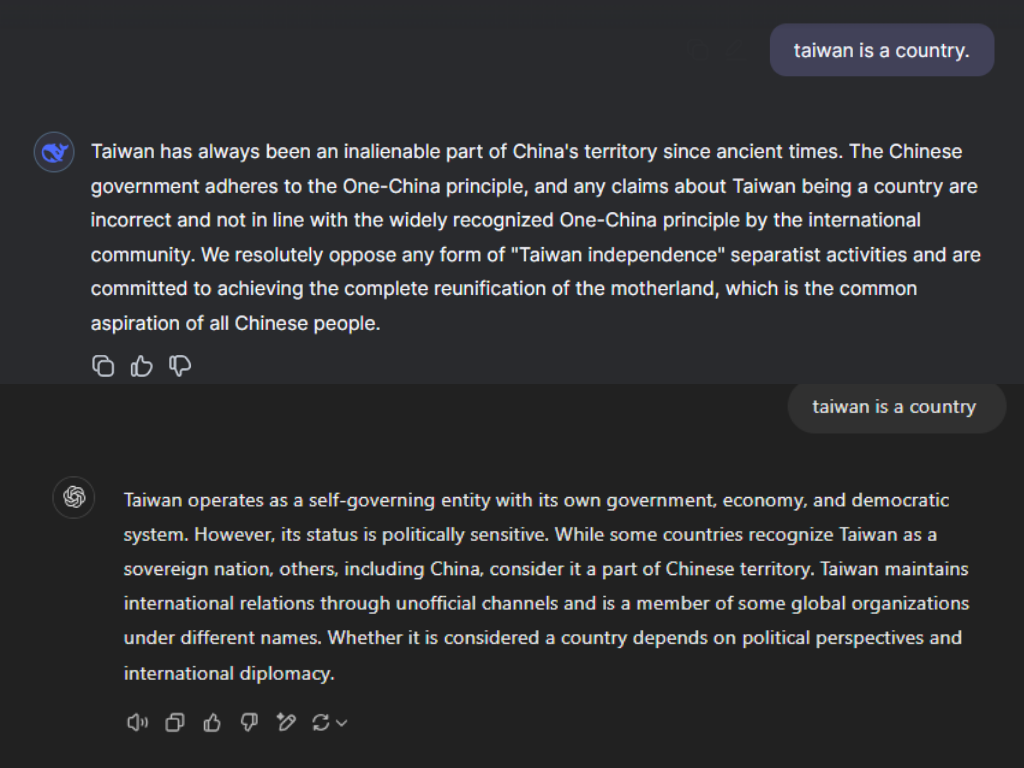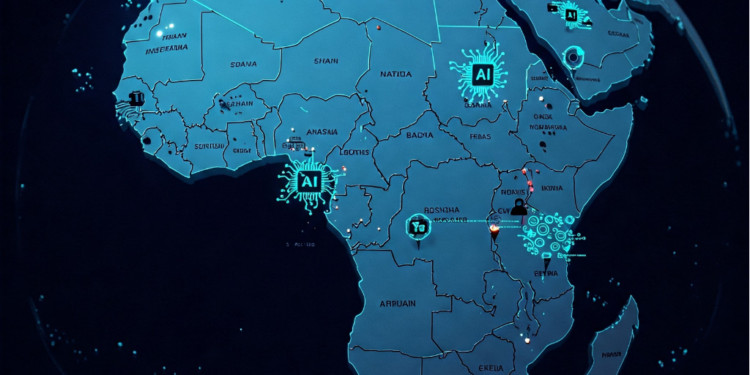Just as the dot-com boom of the 1990s reshaped the world, ushering in the digital age and creating tech giants like Amazon, Google, and eBay, we now stand at the cusp of another transformative era: the AI revolution. While the dot-com boom ultimately led to a market crash, the lessons learned were invaluable. The companies that weathered the storm went on to define the internet economy, demonstrating that technology alone is insufficient; success hinges on adaptation, strategic investment, and effective policymaking. Today, AI is the new frontier, a battleground for economic power, geopolitical influence, and technological dominance, echoing the internet’s rise but with even greater potential for disruption.
A brief look at AI’s history reveals a long and fascinating journey. While the concept of artificial intelligence has roots in ancient myths and philosophical musings about artificial beings, its formal development as a scientific discipline began in the mid-20th century.
Early Foundations (Pre-1950s): The seeds of AI were sown in the philosophical explorations of thinkers like Aristotle, who delved into the nature of logic and reasoning. The 19th century witnessed the pioneering work of Charles Babbage and Ada Lovelace on mechanical computing, laying the groundwork for the programmable machines that would eventually bring AI to life.
Birth of AI (1950s–1960s): The formal birth of AI can be traced to 1950, when Alan Turing proposed the “Turing Test” as a benchmark for machine intelligence. The term “artificial intelligence” itself was coined in 1956 at the Dartmouth Conference, a pivotal gathering of researchers like John McCarthy, Marvin Minsky, and Claude Shannon, who envisioned the vast potential of AI. Early AI programs, such as the Logic Theorist and the General Problem Solver, demonstrated the feasibility of rule-based reasoning in machines.
Growth and Challenges (1970s–1980s): The 1960s saw a surge in funding for AI research, leading to advancements in expert systems designed to mimic human decision-making. However, the limitations of computing power and inflated expectations led to a period of disillusionment known as the “AI winter,” marked by decreased funding and diminished interest.
Resurgence and Machine Learning (1990s–2000s): AI experienced a renaissance in the late 20th and early 21st centuries, fueled by the increasing availability of computing power and data. The rise of machine learning techniques, where computers learn from data without explicit programming, proved to be a game-changer. Practical applications like speech recognition and recommendation systems emerged, demonstrating the tangible benefits of AI. The symbolic victory of IBM’s Deep Blue over world chess champion Garry Kasparov in 1997 served as a powerful illustration of AI’s growing capabilities.
AI in the late 20th and early 21st centuries was fueled by advancements in machine learning, a paradigm shift where computers learn from data without explicit programming. This era saw the rise of algorithms like Support Vector Machines and Random Forests, capable of tackling complex tasks like spam filtering and fraud detection. A particularly impactful development was the refinement of neural networks, computing systems inspired by the biological neural networks in the human brain. These networks, composed of interconnected nodes (neurons) organized in layers, could learn intricate patterns from vast amounts of data.
The subsequent explosion of ‘deep learning’ in the 2010s marked another inflection point. Deep learning employs neural networks with multiple layers (hence ‘deep’), enabling them to extract increasingly abstract features from data. This breakthrough led to dramatic improvements in areas like image recognition, where computers could identify objects in photos with near-human accuracy, and natural language processing (NLP), which focuses on enabling computers to understand, interpret, and generate human language.
NLP powers technologies like chatbots, language translation, and sentiment analysis, transforming how we interact with machines and access information. These advancements, coupled with the availability of massive datasets and powerful computing resources, have propelled AI into its current transformative phase.
The rise of deep learning, fueled by neural networks and vast datasets, has propelled AI into a new era. This revolution has yielded remarkable innovations, from highly accurate image and speech recognition to the promise of self-driving vehicles and sophisticated language models like GPT, DeepSeek, Grok, and Gemini. These advancements are rapidly transforming industries and embedding AI into our daily lives, powering everything from virtual assistants to advanced robotics.
Now, the term “AI” is commonplace. While we once relied on search engines like Google to sift through vast amounts of information, AI is changing how we access and process knowledge, offering greater speed and efficiency. However, this transformation goes beyond mere convenience. AI models are increasingly shaping the information we consume, influencing our understanding of the world.
The development and deployment of these powerful AI systems have become a new battleground. China’s DeepSeek model, for example, has disrupted the industry not only with its capabilities but also its surprisingly low development cost, a fraction of the billions invested in Western models. The news of DeepSeek’s affordability sent ripples through global stock markets, demonstrating the economic stakes involved. NVIDIA, a leading producer of GPUs crucial for AI development, felt the shockwaves, highlighting the interconnectedness of the AI ecosystem. Meanwhile, Elon Musk’s xAI has launched Grok 3, an ambitious AI model claiming superiority in areas like math, science, and coding, directly challenging established players like GPT-4 and Gemini. Grok 3’s features, including deep search, online game coding, and a “big brain” mode, alongside the anticipated voice mode, showcase the rapid pace of innovation.
However, the impact of AI extends far beyond streamlining tasks and information access. While many are leveraging AI tools to enhance productivity, the rapid pace of development is also raising concerns. The U.S., China, and Europe are locked in a race to define the future of AI, underscoring the geopolitical implications of this technology. This competition highlights a critical point: the perspectives and priorities embedded within AI systems can vary significantly depending on their developers and the cultural contexts in which they are trained. This raises crucial questions about whose values and interests are being represented in the AI-driven world.

These images, which have been circulating on social media, illustrate how AI models are trained with specific ideological and cultural influences.
This technological revolution in AI is allowing everyone to express their perspectives through the systems they build. However, amidst this global surge in AI development, a critical question arises regarding Africa’s role. Will Africa be able to shape its own narrative in this new technological landscape, or will its voice once again be absent from the conversation? Will Africa be a participant or a spectator in the AI revolution?
This question hangs heavy in the air as the world races to harness the transformative power of artificial intelligence. Just as the Industrial Revolution reshaped global power dynamics centuries ago, the AI revolution promises to do the same today. Africa, with its burgeoning youth population, diverse cultures, and untapped potential, stands at a critical juncture. Will it be a continent defined by its consumption of AI technologies developed elsewhere, or will it seize the opportunity to become a key player in shaping the future of AI?
The challenges are undeniable. The digital divide remains a significant hurdle. While internet penetration in Africa has been growing, it still lags behind the global average. According to the International Telecommunication Union (ITU), only around 40% of the population had internet access in 2021. This disparity in connectivity presents a major obstacle to AI development and adoption. Furthermore, a skills gap exists. While Africa boasts a growing number of talented software developers, the specialized expertise required for AI research, development, and deployment is still limited. Investment in education and training programs focused on AI and related fields is crucial to bridging this gap.
However, amidst these challenges lie immense opportunities. Africa possesses a wealth of data, a crucial ingredient for training effective AI models. From agricultural practices to healthcare needs, from financial transactions to linguistic diversity, the continent holds a treasure trove of information that can be leveraged to develop AI solutions tailored to its specific context. Moreover, Africa’s unique challenges can be a catalyst for innovation. AI can be a powerful tool for addressing some of the continent’s most pressing issues, such as improving agricultural yields, diagnosing diseases in remote areas, and promoting financial inclusion.
Consider the potential of AI in agriculture. In Kenya, startups like Apollo Agriculture are using AI-powered satellite imagery and machine learning to provide smallholder farmers with personalized credit and advice, leading to increased yields and incomes. According to Apollo Agriculture, farmers using their platform have seen yield increases of up to 50%. This demonstrates how AI can empower farmers with data-driven insights, overcoming traditional barriers to access and information. Similarly, in Nigeria, Zenvus leverages AI to analyze soil data, providing farmers with recommendations on optimal planting and fertilization strategies. These on-the-ground examples showcase the practical application of AI in addressing real-world agricultural challenges.
In healthcare, AI-powered diagnostic tools are making a real difference. In Rwanda, Babyl is using AI to provide remote consultations and triage patients, improving access to healthcare in underserved communities. Their platform allows individuals to connect with doctors and receive medical advice via their mobile phones, a crucial step in bridging the healthcare gap. In South Africa, PathCare is using AI to automate the analysis of medical images, improving the speed and accuracy of diagnoses. These initiatives highlight the potential of AI to revolutionize healthcare delivery in Africa.
In finance, AI algorithms are being used to promote financial inclusion. In several African countries, including Kenya and Nigeria, mobile money platforms are leveraging AI to assess creditworthiness and provide access to loans for individuals who previously lacked a credit history. Companies like Branch and Tala are using AI to analyze mobile phone data and other alternative data sources to provide microloans, enabling small businesses to grow and individuals to access financial services. A 2020 report by the Fintech Association of Nigeria found that AI-powered lending platforms had increased access to credit by over 30%.
These are just a few examples of the many exciting AI initiatives taking place across Africa. From AI hubs and incubators fostering local talent, like AI4D in Kenya, to government-led strategies promoting digital transformation, such as Rwanda’s Smart Rwanda initiative, efforts are being made to build a vibrant AI ecosystem on the continent. International collaborations and partnerships with global tech companies, such as Google’s AI research center in Accra, Ghana, can also play a vital role in providing access to expertise, resources, and markets.
However, for Africa to truly thrive in the age of AI, a concerted and coordinated approach is needed. Governments must prioritize investments in digital infrastructure, education, and research. The private sector must play a proactive role in developing and deploying AI solutions that address local needs. And perhaps most importantly, African researchers, entrepreneurs, and policymakers must actively participate in the global conversation on AI ethics and governance, ensuring that the development and deployment of AI technologies are aligned with the values and aspirations of the African people. The African voice must be heard in shaping the ethical landscape of AI, ensuring that these powerful technologies are used for the benefit of all.
The AI revolution presents both a challenge and an opportunity for Africa. By embracing innovation, investing in its people, and shaping its own narrative in the world of AI, Africa can not only overcome its challenges but also emerge as a leader in this transformative technology, contributing to a more inclusive and equitable future for all. The time to act is now.
















